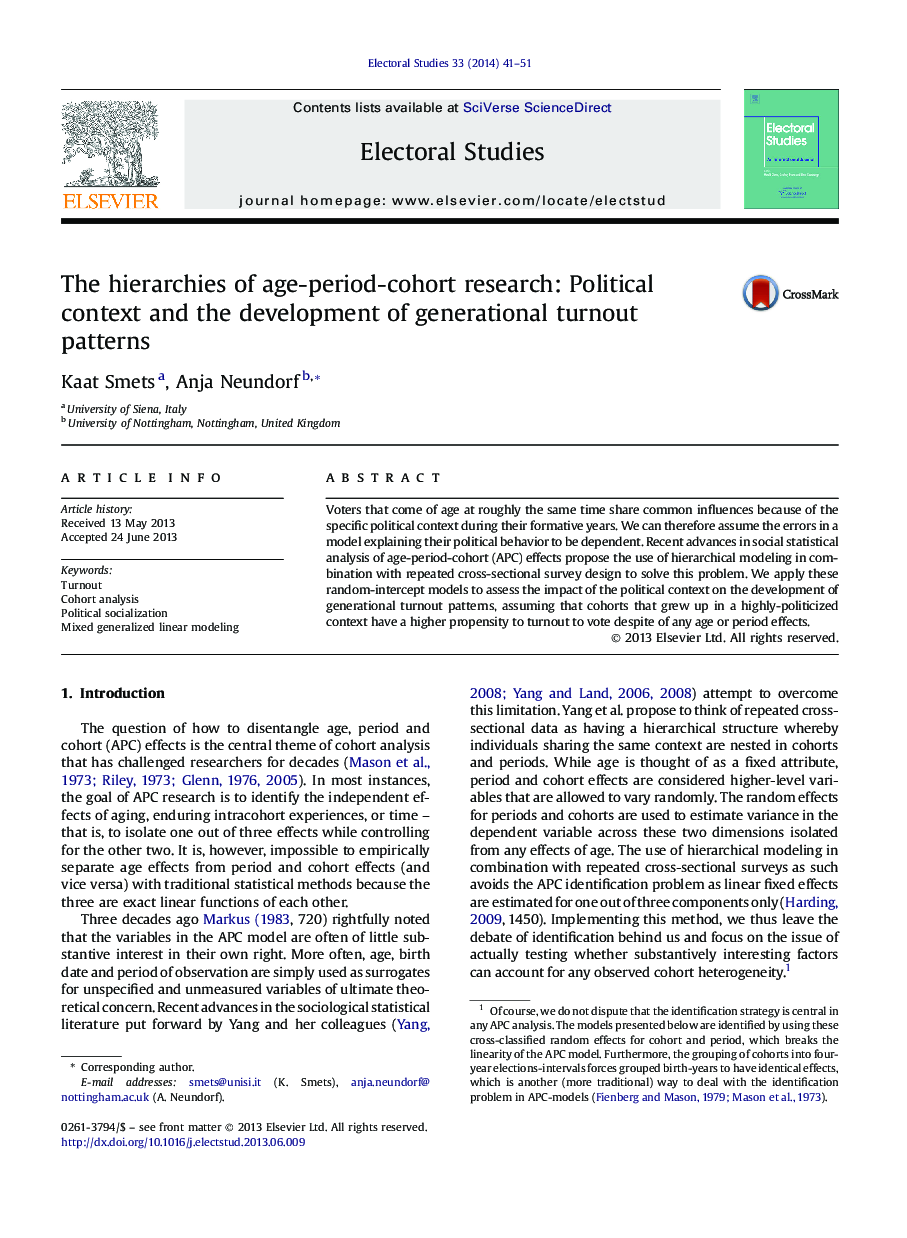| Article ID | Journal | Published Year | Pages | File Type |
|---|---|---|---|---|
| 1051890 | Electoral Studies | 2014 | 11 Pages |
•Use of cross-classified random-intercept modeling.•Generational differences in turnout propensity.•First two elections account for long-term turnout patterns.•Cohorts coming of age under highly-politicized elections turnout more.
Voters that come of age at roughly the same time share common influences because of the specific political context during their formative years. We can therefore assume the errors in a model explaining their political behavior to be dependent. Recent advances in social statistical analysis of age-period-cohort (APC) effects propose the use of hierarchical modeling in combination with repeated cross-sectional survey design to solve this problem. We apply these random-intercept models to assess the impact of the political context on the development of generational turnout patterns, assuming that cohorts that grew up in a highly-politicized context have a higher propensity to turnout to vote despite of any age or period effects.
